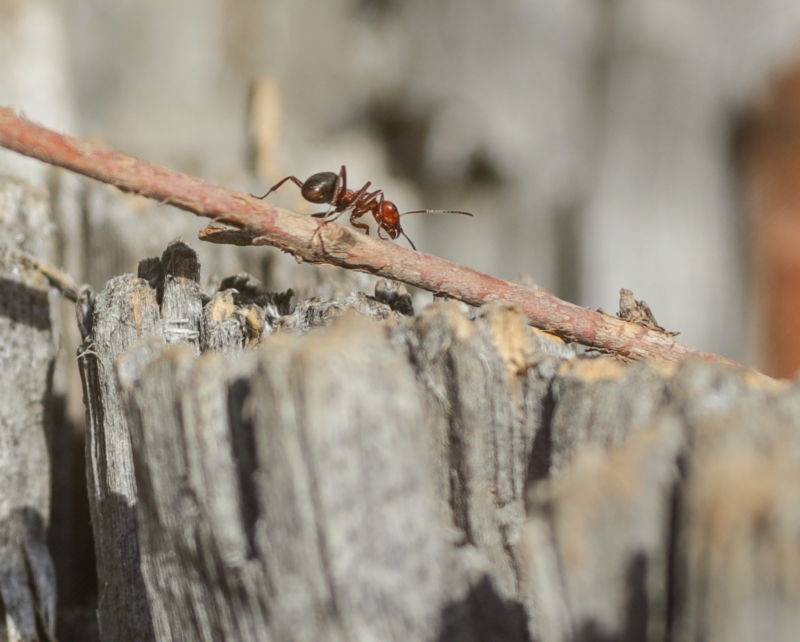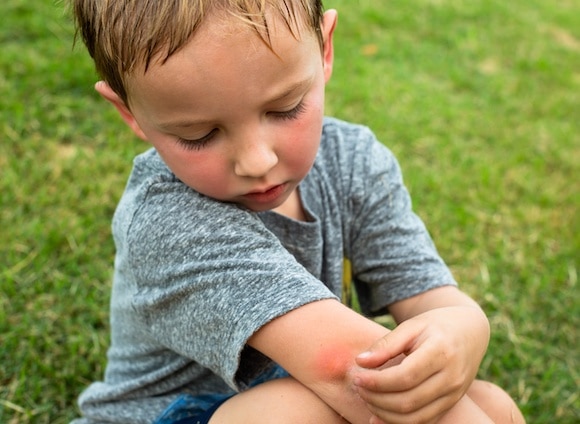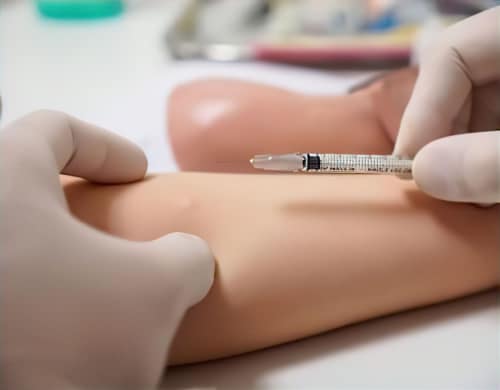
Skin Allergy Testing
This is less invasive than blood tests and is a good alternative for patients who don’t like needles.
learn moreStinging insects such as wasps, hornets, yellow jackets, and honeybees trigger the majority of allergic reactions in the U.S.
Source: US Forest Service www.fs.usda.gov
Condition content was medically reviewed by an AllerVie Health physician in August 2024.
According to the American College of Asthma and Immunology, between 1.6% and 5.1 % of US citizens have life-threatening allergic reactions to insect stings. Insect stings and insect bites may seem similar at first glance, but they can evoke different reactions in the human body, especially for those with allergies.
Biting insects like mosquitos, gnats, black flies (nicknamed “no-see-ums”), etc. do not cause systemic/anaphylactic reactions and their bites cause nothing more than itchy mild local reactions.
Allergic reactions to insects is a critical topic of discussion due to their potentially serious consequences. For some people, a single sting can trigger a severe allergic reaction, known as anaphylaxis, which requires immediate medical attention.
It is important to recognize the signs of an allergic reaction and know how to respond promptly, as delays in treatment can be life-threatening. Furthermore, understanding the difference between a normal reaction and an allergic response can help individuals take appropriate precautions and seek medical help when necessary.

An allergic reaction to an insect results from the body’s immune system overreacting to the sting. In most cases, the insect’s venom will trigger a response in the body. Species that sting can cause serious reactions are:
Some patients may also experience a mild reaction or irritation to substances associated with an insect, such as dust mite droppings. Species that bite can cause reactions are:
These reactions are caused by the saliva secreted during the bite, which contains biogenic amines and vasoactive peptides, as well as various anticoagulant proteins and digestive enzymes, which regularly induce an antigen-specific immune response.
Signs and symptoms range from mild discomfort to severe reactions. Common symptoms of severe allergic reaction or anaphylaxis include hives, difficulty breathing, or dizziness.
Normal reactions include on-site swelling, itching, and redness. An allergic reaction, on the other hand, involves non-local reactions, including:
Symptoms of anaphylaxis include a sharp drop in blood pressure, dizziness, cardiac arrest, and loss of consciousness. Anyone experiencing allergic symptoms to an insect sting should seek out immediate medical care.

Your immune system produces antibodies that detect the allergen, causing inflammatory reactions and the release of chemicals, including histamine. It’s not known why some people are allergic to venom and others are not.
Insect stings are similar to other allergic reactions. If you have an allergy, your immune system overreacts to an allergen by producing antibodies called Immunoglobulin E (IgE). These antibodies travel to cells that release chemicals, causing an allergic reaction.
Source: AAAAI

Skin Allergy Testing
This is less invasive than blood tests and is a good alternative for patients who don’t like needles.
learn more
Intradermal Allergy Testing
This is done after a scratch test and involves injecting a small amount of an allergen under the skin.
learn more
Blood Testing for Allergies
Blood tests can tell if someone has allergies by finding antibodies in the blood that react to allergens.
learn moreA skin allergy test is an umbrella term used to refer to a number of testing procedures used in the diagnosis of allergies. Skin allergy tests are popular because they help diagnose many common allergies. There are several different types of skin tests used by the medical community to diagnose allergies. Each of these tests comes with its own pros and cons. The most common care tests are the intradermal test, patch test, and scratch test.
Blood testing diagnoses allergies by identifying the
presence of allergen-related antibodies in the blood. When the body’s immune system triggers an allergic reaction, it releases more Immunoglobulin E (IgE) into the bloodstream. When a blood test identifies an elevation of IgE, it
suggests the allergen culprit.

It’s essential to look for repellents that are specifically designed to be long-lasting and effectiveness even when sweating, making them ideal for outdoor activities, hiking, or any situation where you might be exposed to insects. Always check the ingredient list for potential allergens and opt for those with a proven track record of being gentle on sensitive skin. Natural alternatives with ingredients like oil of lemon eucalyptus can be effective options.

Wearing protective clothing is a very important prevention strategy for children with insect allergies as they are not naturally cautious and don’t know what to look out for.

Immunotherapy uses a concentration of proteins from the substance that is triggering your allergies: pollen, dander, dust mites, insects, mold, etc. This allergen extract is administered through an injection or with allergy drops or pills.
Insect sting allergies, such as those to bees, wasps, hornets, yellow jackets, and fire ants, can be treated with immunotherapy. Immunotherapy for insect allergies is through small dosing of their venoms.
Diagnosing an insect bite allergy is a multi-step process. Your doctor or allergist will first take a complete medical history, including details on any previous bites experienced.